Roger Allen - The Shattered Sphere
Здесь есть возможность читать онлайн «Roger Allen - The Shattered Sphere» весь текст электронной книги совершенно бесплатно (целиком полную версию без сокращений). В некоторых случаях можно слушать аудио, скачать через торрент в формате fb2 и присутствует краткое содержание. Год выпуска: 1994, ISBN: 1994, Издательство: Tor Books, Жанр: Фантастика и фэнтези, на английском языке. Описание произведения, (предисловие) а так же отзывы посетителей доступны на портале библиотеки ЛибКат.
- Название:The Shattered Sphere
- Автор:
- Издательство:Tor Books
- Жанр:
- Год:1994
- ISBN:0-312-85734-9
- Рейтинг книги:5 / 5. Голосов: 1
-
Избранное:Добавить в избранное
- Отзывы:
-
Ваша оценка:
- 100
- 1
- 2
- 3
- 4
- 5
The Shattered Sphere: краткое содержание, описание и аннотация
Предлагаем к чтению аннотацию, описание, краткое содержание или предисловие (зависит от того, что написал сам автор книги «The Shattered Sphere»). Если вы не нашли необходимую информацию о книге — напишите в комментариях, мы постараемся отыскать её.
.
Humans face two enemies—the implacably powerful Charonians who kidnapped the Earth, and the mysterious Adversary, before whom the Charonians quake in fear. Can an unlikely combination of scientists, corpses, dictators, and professional troublemakers withstand both threats and return the Earth to its proper place in the Solar System?
The Shattered Sphere — читать онлайн бесплатно полную книгу (весь текст) целиком
Ниже представлен текст книги, разбитый по страницам. Система сохранения места последней прочитанной страницы, позволяет с удобством читать онлайн бесплатно книгу «The Shattered Sphere», без необходимости каждый раз заново искать на чём Вы остановились. Поставьте закладку, и сможете в любой момент перейти на страницу, на которой закончили чтение.
Интервал:
Закладка:
She needed to see better. “Okay, Wally. Magnify planet and satellite images by a factor of five hundred.” Mars, Jupiter, Venus, all the worlds were suddenly huge, with vivid detail plain to see. Chaos boiled everywhere. A dust cloud started to form around Mars. Jupiter’s Red Spot started to churn. Saturn’s rings disintegrated. Then, out at the edge of the Solar System, something strange started to happen. Charon shrank away to nothing, and then Pluto started to collapse in on itself. The Ring of Charon crushed one world, then the other, swallowing them up to form a human-controlled black hole with the power to strike back—at least once—at the invaders. Planet and satellite vanished, their place taken by a ruby-red spot of light at the centerpoint of the Ring.
“How sure are we on this?” Sianna asked, gesturing toward the image of the new Plutopoint black hole. Even just looking at it made her feel a little bit queasy, a little bit soiled. There was something fundamentally wrong, indecent, about destroying a world, no matter how great the necessity.
“The computers put the probability at over ninety-five percent, but I’d say that’s on the low side. Something back in the Solar System developed enough power to kick a massive jolt of gravity power through the Lunar Wheel and on through it to the Moonpoint Ring here in the Multisystem.”
Wally worked the controls and expanded the image of the Ring until it was five meters top to bottom, spinning smoothly around the angry red eye at its center. His voice was deep and thoughtful, as if this were one of the few realities he had faced—perhaps because the way he could face was it in a simulator. “Over the years I’ve run, a—a million sims of what must have happened back there,” he said.
“And it had to be this way?” Sianna asked. “No other choice?”
Wally shut his eyes and nodded—his way of emphasizing a point.
He opened them again and pointed at the blood-red image of the black hole. “Unless they learned how to spin a massless black hole somehow—and I don’t think they could have—then, well, the only way to punch that much power through would be by drawing on at least a Pluto’s worth of mass in a black hole. Dr. Sakalov says that might be conservative. He thinks they might have been forced to pull in some of the Neptunian moons as well. But I don’t think they would have had time to do that. Things were moving fast—and the— the System was in pretty bad shape by then. Hard to do anything .”
“But God Almighty,” Sianna protested, “what a thing to do! They smashed a world , a four-billion-year old world , just to save a bunch of over-brainy apes from being eaten.”
“No,” Wally said, a bit sharply. Clearly he had thought about this for a while. The hesitation was gone from his voice. “Saving themselves—saving the only species with our kind of intelligence that we know of—that was reason enough to do it. But they had better reasons than that.” He walked over to the simulator controls and brought the imagery back to its previous state, with enlarged images of the worlds hanging in their correct relative positions. “They did it to save all of this. If the people in the Solar System hadn’t stopped them, the Charonians would have taken Pluto apart anyway. They had to sacrifice one planet, and one satellite, to save all the rest.”
“If they did manage to save them,” Sianna said.
Wally nodded sadly. “We’re just guessing at that. For all we know, the Solar System Charonians didn’t die, and there’s nothing left back there at all. We think they fought them off, but there’s—there’s no way to be sure,” Wally replied. He seemed about to say something more, but then he stopped himself. Sianna nodded sadly. What more was there to say?
“I know,” she said. Strange to hear Wally saying such things. But he was, after all, a human being. How could any living person not brood about such things now and again? Even Wally had to look outside himself once in a while. “No one ever likes to think about that—but it’s exactly that possibility that I want to look at. That’s why we’re here right now. To look at… at that. At the Solar System dying.”
“Huh? Why?”
“Because I think there are some answers there, in the way it would have died. The way it might have died,” Sianna said. “I know there are.”
Ten
Do It Yourself
“In the most cold-blooded analysis, and speaking on a purely logical level, without reference to theology or philosophy, life is not reasonable. Life does not make any sense. It has no purpose other than its own perpetuation.
“The only purpose of life is more life, a fact which does not seem to bother us—though one would think it might. We mock organizations whose only purpose seems to be their own survival. We are offended by makework projects which seem to accomplish nothing beyond keeping workers working. We are scandalized when some opportunistic person shoves a fellow creature aside in order the reach for the main chance.
“How is it then, in the grander scheme of things, that we are not bothered that the only reason for making babies is to make more babies as a way of making more babies after that? Why are we not upset to see a mother determined to protect her family at any and all costs to others, as well as to herself? How many otherwise immoral acts are excused because they are for the sake of a child?
“The answer, of course, is that we know life must perpetuate itself, at all cost, for if it fails to do so, all is lost. This is our most basic instinct. No living thing could survive without this knowledge embedded in its every gene…
“…Life must live off life, which is to say it must live off death. Even the most gentle of vegetarian species lives by killing and eating plants. Life’s perpetuation, its renewal, and acts of creation, are of necessity exactly balanced by acts of destruction.”
—Gerald MacDougal, Aspects of Life , MRI Press, 2429“All right, then,” Sianna said. “You’re in charge, Wally. Start from where we left off and assume the Charonians won. Take apart the whole damn Solar System and build me a Dyson Sphere, a Multisystem. I want to see how it’s done.”
“But, um, ah… I don’t know if I have the simulation routines.
“Then we’ll write new routines,” Sianna said, cutting him off. “I’m near the answers , Wally. Damned near. If things break the way I think they will, then”—she paused to choose her words—“then all sorts of things might be possible.”
Wally blinked at her, a bit owlishly, and then nodded. “Okay,” he said. “What do you want the sim results to be?”
There! That was the question that had crippled them for so long. Not what are the results , but what do you want the results to be ? That mindset, and a distinct reluctance to consider the possibility of ultimate, final disaster in the Solar System, were the two reasons no one had seen the answer.
“I want the sim to do whatever it wants to do,” she said. “Reset to the moment the Lunar Wheel woke up. Factor out all human interference, and let’s see what the Charonians would do with the cards they were dealt.”
In that sense, at least, the Charonians were like everyone else. They had to work with what they had; not deal with what was logical, but with the available Universe.
That was the point that everyone missed. Sakalov viewed them as supremely logical beings, and maybe they were. But the Charonians did not live in a logical or rational Universe—and they did not spring from nowhere. Like every other life-form—if you considered them a life-form—they had evolved. There seemed little doubt that they had directed their own evolution, but all the same, the current form had to keep itself alive while it was on its way to creating the new one. Whales still had toe bones. Birds still had lizard feet. You used the structures you had and modified them.
Читать дальшеИнтервал:
Закладка:
Похожие книги на «The Shattered Sphere»
Представляем Вашему вниманию похожие книги на «The Shattered Sphere» списком для выбора. Мы отобрали схожую по названию и смыслу литературу в надежде предоставить читателям больше вариантов отыскать новые, интересные, ещё непрочитанные произведения.
Обсуждение, отзывы о книге «The Shattered Sphere» и просто собственные мнения читателей. Оставьте ваши комментарии, напишите, что Вы думаете о произведении, его смысле или главных героях. Укажите что конкретно понравилось, а что нет, и почему Вы так считаете.


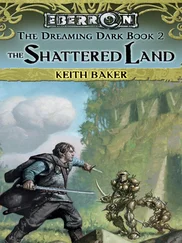
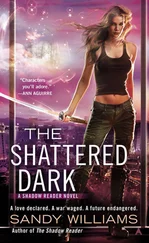
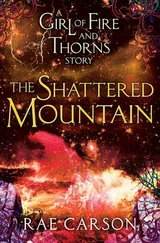

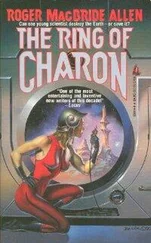

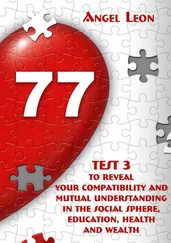
![Ширли Мерфи - The Shattered Stone [calibre]](/books/436059/shirli-merfi-the-shattered-stone-calibre-thumb.webp)


